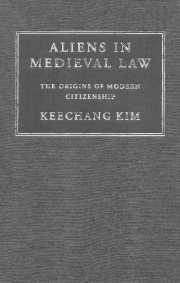Preface
Published online by Cambridge University Press: 08 July 2009
Summary
On what ground do we maintain a legal distinction between citizens and non-citizens? Some would regard this as a futile attempt to doubt the obvious. ‘How could you not draw a distinction between citizens and non-citizens?’ they would reply. When a concept or a categorical division has been widely and frequently used for a long period, one is tempted to think that the concept or the categorical division is somehow ‘branded’ in the very nature of human beings. Each and everyone would then be born with it. The division between citizens and non-citizens is perhaps one such categorical division. Even those who would firmly reject the legal distinction and discrimination based on all other criteria will have no difficulty in accepting the legal discrimination based on nationality. When a division becomes so persuasive, it becomes inescapable as well. Our imagination falls prey to this categorical division in the sense that any alternative arrangements one could possibly imagine would simply look ‘unnatural’ and absurd.
The present work is an attempt to study the historical origin of this categorical division often regarded by many as wholly natural and inescapable. Why, is there anything more to be said about the beginning of the legal distinction between citizens and aliens (non-citizens)? Do we not already know that feudalism in medieval Europe was an antithesis of the State structure?
- Type
- Chapter
- Information
- Aliens in Medieval LawThe Origins of Modern Citizenship, pp. ix - xiPublisher: Cambridge University PressPrint publication year: 2000



